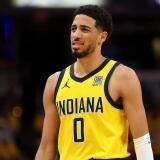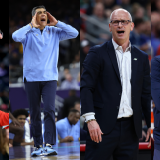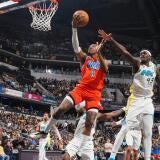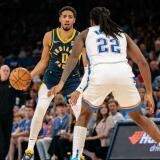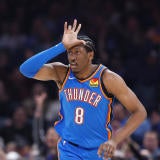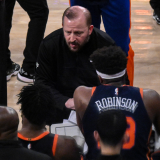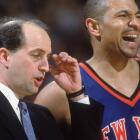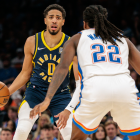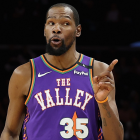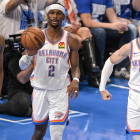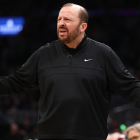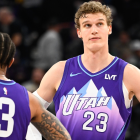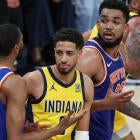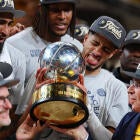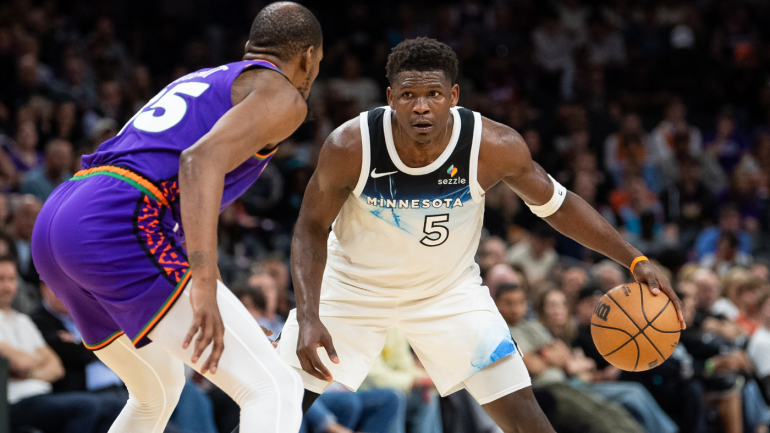
There are two reasonable ways to evaluate the Minnesota Timberwolves as they enter the 2025 offseason, fresh off another Western Conference finals defeat.
- This team has reached consecutive Western Conference finals. The only other team to do that within the past decade was the dynastic Golden State Warriors, and the Timberwolves did it around a 23-year-old Anthony Edwards. There is plenty of youth around him, as Jaden McDaniels, Naz Reid and Nickeil Alexander-Walker are all rotation fixtures who are 26 or younger, and Jaylen Clark, Terrence Shannon and Rob Dillingham are all promising prospects between the ages of 20 and 24. This is one of the best and most dependable teams in the Western Conference and figures to remain competitive for years to come.
- The team that reached the 2024 Western Conference finals died the moment it traded Karl-Anthony Towns, and the 2025 team only got back there because of a weak bracket. The Timberwolves beat a Lakers team without a center and a Warriors team without Stephen Curry to win its first two series, and then, the moment they tried to play with the big boys, they got a slap in the face from a true contender in Oklahoma City. Even if there is youth on the team, it is outweighed by the older players who appear set to decline. Mike Conley is 37. Rudy Gobert is 32, was borderline unplayable on offense in the playoffs, and is now set to begin a three-year contract extension. Julius Randle is 30 and, thanks to his player option, has the leverage to demand a long-term deal that the Knicks didn't want to give him. This team has peaked.
The truth, as with most things, is probably somewhere in between. What's so concerning here is that it might not even matter because of who just beat them in five games. The Thunder raised the bar. For all of the talk of parity and seven champions in seven years, Oklahoma City isn't going away.
We already know that the Timberwolves, as presently constructed, are not equipped to beat the Thunder. They probably aren't equipped to beat them moving forward either, because the Thunder aren't divided between youth and age. Everyone they have figures to get better, they're loaded with draft picks Minnesota doesn't have, and they're much further away from a financial crunch.
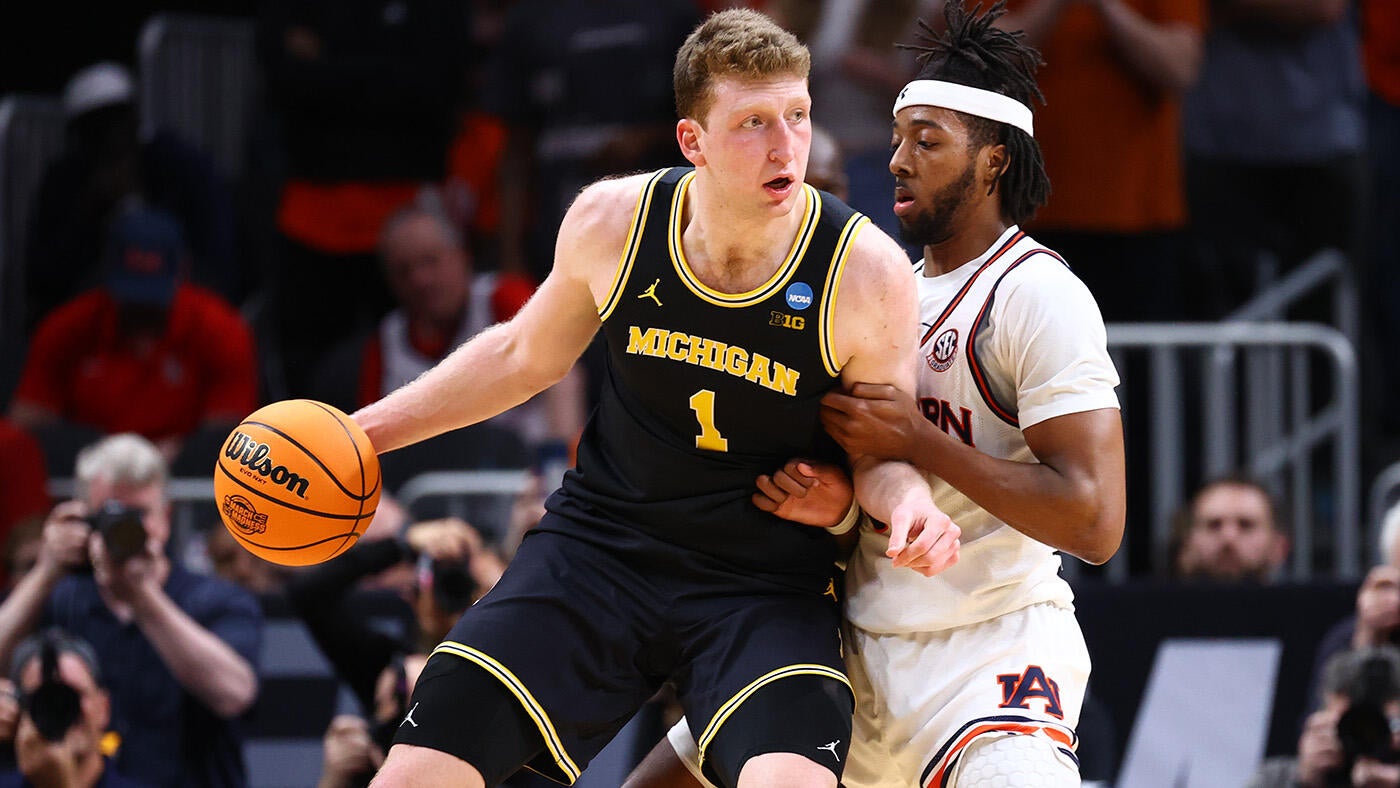
Avoiding that crunch was the entire point of the Towns trade. The idea was to escape his long-term supermax contract and maximize their long-term flexibility with Randle's shorter deal. That wasn't just flexibility they needed for future improvement. It was flexibility they needed just to keep the rest of this core together.
Strip the Timberwolves down to their guaranteed contracts for next season (and their favorable team options), and they have $150.1 million owed to 12 players. Not bad, right? Well, that doesn't include Randle or Reid, who have player options, or Alexander-Walker, who is an unrestricted free agent. The projected second apron for next season is $207.8 million. That leaves them less than $58 million to re-sign all three below the line, or around $27 million if Randle picks up his $30.9 million option.
The Timberwolves aren't necessarily bound by the second apron. They could exceed it. For the moment, we're only talking about re-signing their own players with Bird Rights. They are not (yet) hard-capped. But the Timberwolves already exceeded the second apron this season. A team can do so twice in a five-year period without penalty. Do so a third time and a frozen first-round pick -- in this case, Minnesota's 2032 selection -- automatically drops to No. 30 overall. This system was designed assuming teams wouldn't be willing to risk that, and Minnesota likely won't. If the Timberwolves go above the second apron next season, they're probably not going to be able to do so again for several years. The Western Conference finals suggested that they probably aren't close enough to risk their last second-apron season quite yet.
Even if they are, will this new ownership group led by Marc Lore and Alex Rodriguez be willing to? In 2024, ESPN reported that the Lore-Rodriguez group planned to try to duck the luxury tax entirely for the 2024-25 season, an almost impossibly cheap maneuver. As they fought with former owner Glen Taylor for control of the team, they reportedly added several high-profile investors: Michael Bloomberg, Eric Schmidt and Blue Owl Capital. We don't know how focused investors like that are going to be on the budget compared to the on-court goal of trying to compete for championships. In short, we have no idea just how high their payroll even can get, independent of basketball concerns.
So even if Minnesota wants to run it back, it would be doing so in all likelihood with someone leaving. Maybe that's a younger player like Reid or Alexander-Walker in free agency. Maybe they trade an older one like Conley or DiVincenzo instead. But the odds of the core eight all returning next season, for purely financial reasons, are pretty low. If this group wasn't good enough to beat the Thunder, a weakened version of it won't be next year, either.
Only time will tell how ambitious these Timberwolves really are. Some teams are content to hang around the second or third round every year and hope that circumstances take them over the top. A sprained ankle here, a cold shooting streak there, make it that far and anything can happen.
But nothing Tim Connelly has done in running this team suggests he'll be comfortable sitting on his hands. Between the Gobert and Towns deals and his draft night swing on Dillingham, there hasn't been a more aggressive general manager in basketball in recent years. You have to be aggressive in a market like Minnesota. Edwards is still a long way away from free agency, but that clock always starts ticking faster than a team might realize. The moment he feels he can't realistically compete for titles in Minnesota is the moment that everything this organization has built around him starts to crumble.
If the team here and now isn't good enough to compete with the Thunder, something drastic is going to have to be done to change that. They'll either need to push even more chips in here and now to try to catch up to Oklahoma City, or they'll need to take a step back to give themselves a chance to do so later.
Given how little draft capital the Timberwolves have remaining, the win-now upgrade options are going to be limited. They're not getting Giannis Antetokounmpo. They're not getting someone healthy and in their prime. If they want to get a big name now, it will be one that comes with some associated risk. There's really only one name that makes sense on that front. The Timberwolves were linked to Kevin Durant at the deadline. Durant was Edwards' childhood idol, and the two played together for Team USA last summer. Odds are, the Timberwolves sniff around Durant again.
McDaniels is probably off of the table entirely. The question is whether or not Phoenix would demand Rudy Gobert in a deal. He's the NBA's ultimate defensive floor-raiser and their defense is a mess. Of course, Minnesota's would be too without him. Reid is not a full-time rim-protector and part of the reason the Knicks traded Randle was because they knew he couldn't play center. If the Suns would cooperate on a swap built around, say, Randle, Conley and DiVincenzo? This might make sense. It would be a high-risk bet on the youngsters filling in for the lost depth, but it would be a way to vastly increase their offensive upside without sacrificing the defensive identity Gobert gives them.
Of course, any potential Durant trade shortens Minnesota's window substantially. He's 37. At best, he's looking at another few years as an All-Star. Is this really the window the Timberwolves want to bet on? At the peak of Oklahoma City's powers? Or might it make sense to take a step back here and go the other way. What if the Timberwolves went all-in on the young core, traded Gobert and elected not to give Randle a long-term deal?
This is yet another risk, but a different sort. The maneuverability this approach would create could be quite beneficial. If the young players shine, they could perhaps even refill the coffers enough to take another swing at a younger star down the line. But this approach wouldn't pay off immediately. As frustrating as Gobert's offense was in the playoffs, this is not a Western Conference finals team without him. Remove him and suddenly the Timberwolves might be a play-in team -- a fate they avoided by only a single victory this season. That's a precarious place to be as Edwards comes of age. Would he accept stepping back for a few years? What if they aren't contending in a few years, as his free agency approaches? Is avoiding Oklahoma City's window all that valuable with San Antonio's looming afterward?
These are tough questions, but there are no easy answers for a Timberwolves team that is much further from contention than its Western Conference finals berths suggest. Reaching the mountaintop means beating teams like the Thunder, and if the series we just watched is any indication, that's not feasible for Minnesota right now. There are going to be changes here. They might be minor cost-cutting maneuvers or they might be wholesale, but this year's team is not returning in its entirety. It's up to the Timberwolves to figure out what exactly that means moving forward.
![[object Object] Logo](https://sportshub.cbsistatic.com/i/2020/04/22/e9ceb731-8b3f-4c60-98fe-090ab66a2997/screen-shot-2020-04-22-at-11-04-56-am.png)



